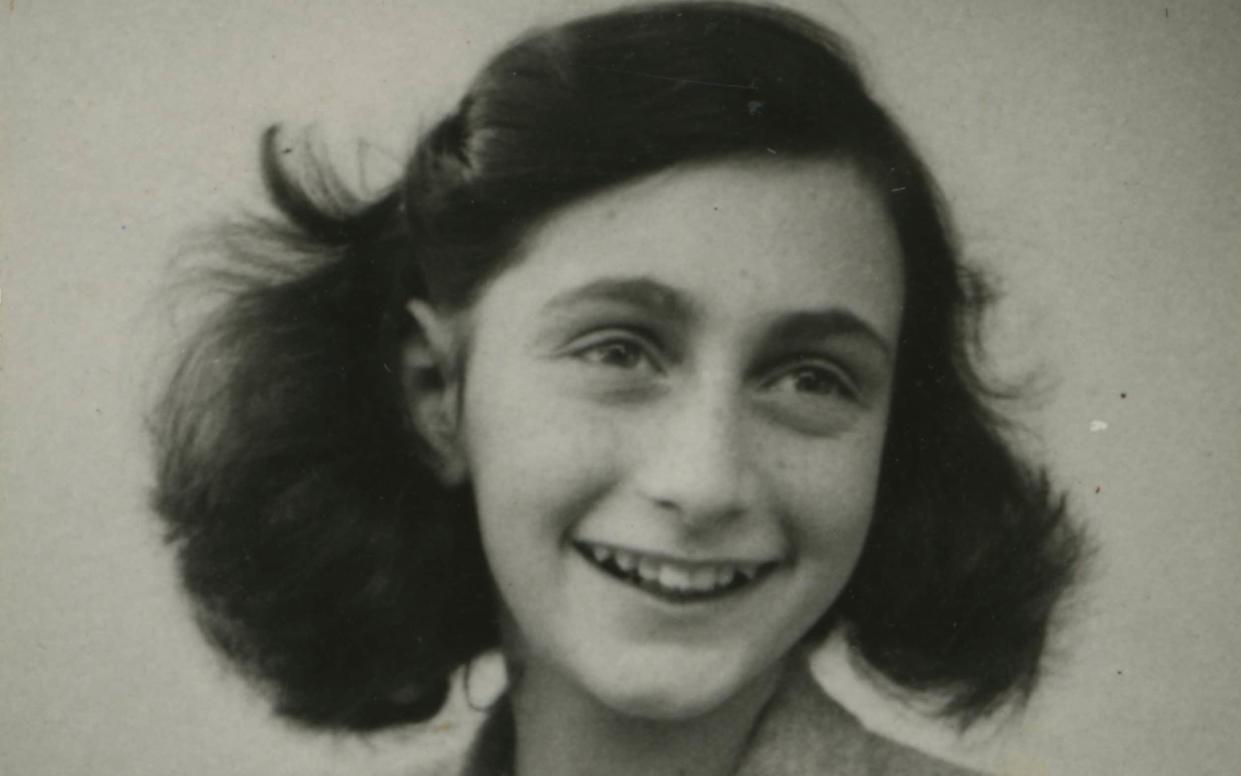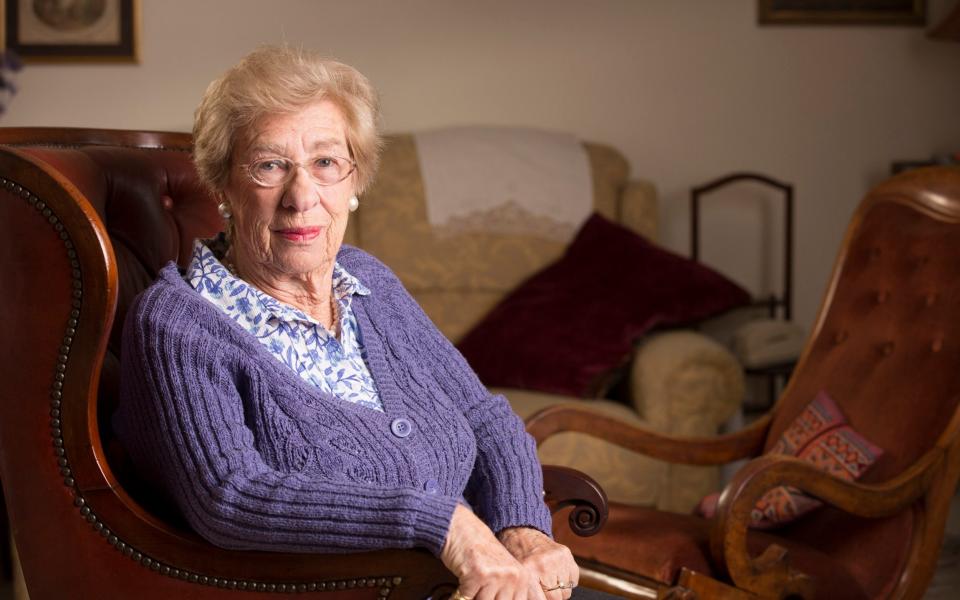Anne Frank would not have stayed optimistic if she had survived Holocaust, says step-sister

- Oops!Something went wrong.Please try again later.
- Oops!Something went wrong.Please try again later.
Anne Frank would not believe in the “goodness of mankind” had she survived the Holocaust, her step-sister has said.
Eva Schloss, 92, co-founder of the Anne Frank Trust, survived the Auschwitz concentration camp, where her brother and father were murdered by the Nazis, but has dedicated her life to travelling around the world to tell her story, raise awareness of “terrible atrocities” and to prevent history from repeating itself.

However, speaking about her stepsister, the Jewish German-Dutch diarist who was murdered by the Nazis when she was just 16 in 1945, Mrs Schloss said that she does not believe Frank would have remained so optimistic about humankind had she survived the Holocaust.
Frank gained fame posthumously in 1947 following the publication of her diary, The Diary of a Young Girl, which documented her life in hiding from 1942 to 1944, during the German occupation of the Netherlands in the Second World War.
Her most optimistic entries include: “It’s difficult in times like these: ideals, dreams and cherished hopes rise within us, only to be crushed by grim reality.
"It’s a wonder I haven’t abandoned all my ideals. They seem so absurd and impractical. Yet I cling to them because I still believe, in spite of everything, that people are truly good at heart.”
'How can you say people are good at heart? That’s not true'
Yet Mrs Schloss said watching news of war and the international refugee crisis motivate her to continue speaking out about morality and get younger people to “change their attitude to race and religion”.
“People have to learn that we have no right to criticise other people because they have a different colour or a different religion; and that it can hit them that it can happen to anybody, because there is this hatred, people don’t accept differences. We learn that,” she said.
“I always dispute when people quote this from Anne Frank that ‘Oh, the world looks so dark, [yet] she still believes in the goodness of mankind’. And I said, ‘She wouldn’t have said that if she would have survived the camps and experienced how terrible people can be to each other [...]’.
“How cruel they were. It was completely unnecessary to hurt people and beat them even more than they were when they were down, you know. And how can you say people are good at heart? That’s not true.
“But we have to teach the young people to be more tolerant, to accept each other for the differences that make life interesting [...] and it depends how you bring up your children, how they learn to accept each other.”
Asked what her biggest concern for the future was, she added: “There’s a lot of education to be done in morality. It’s not just science and languages and things like that. But morality, to get more decent people accepting that we were created in different colours, different habits and in different worship and this is perfectly alright.”
In 1938, Mrs Schloss fled Austria as a child to escape the Nazis after the country was incorporated into Nazi Germany. Her family settled in Belgium, and eventually settled in the Netherlands, where she met and befriended Frank.
After the Nazis invaded the Netherlands in 1940, the Franks went into hiding, but were caught in 1944. Frank penned the diaries that later made her one of the world’s best-known Holocaust victims. She died at a Nazi camp in 1945. Her sister and mother also perished.
Mrs Schloss’s family was also caught in hiding in Amsterdam and sent to the Auschwitz death camp in Nazi-occupied Poland. By the time they were liberated by the Soviet army, in January 1945, Mrs Schloss and her mother were barely alive; her brother and father both died in captivity. In 1953, Mrs Schloss’s mother, Elfriede, married Frank’s father, Otto.
For the past 70 years, she has lived in London.
In 2016, she accused Donald Trump of "acting like Hitler" during the presidential campaign.

